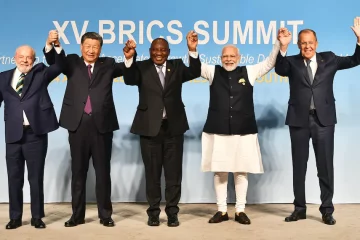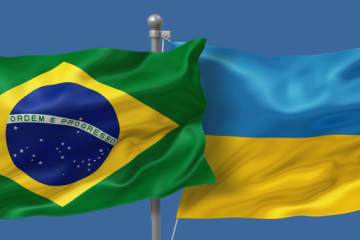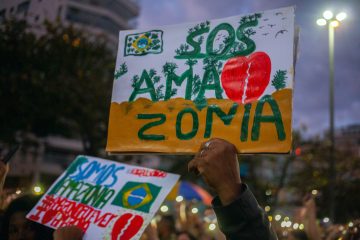
From BRICS to BRICS+: Implications for the Group, Multilateralism, and the Global South
Introduction After World War II, the multilateral system was designed to promote international peace, drive economic growth, and ensure global cooperation. Institutions such as the United Nations, International Monetary Fund, and World Trade Organisation established alliances, treaties, and agreements with the aim of achieving shared prosperity. In recent years, however, cracks are beginning to appear within this system. The world has witnessed a sharp increase in geopolitical crises like the Russia – Ukraine war, withdrawals from treaties, trade protectionism and back-sliding democracies. The multilateral system has also failed to deliver comprehensive solutions to global issues such as COVID-19 and climate change. As the inequalities within the multilateral system become increasingly apparent, calls for change are starting to reverberate across the …

Pacifism as pragmatism: Brazil’s stance on the war in Ukraine
Since the beginning of Russia’s war on Ukraine, Brazil, then still under Bolsonaro’s government, has maintained an official position of neutrality. Under Lula’s administration, this position did not change, frustrating many policymakers in the Global North. So what explains Brazil’s stance on the war in Ukraine? Dawisson Belém Lopes argues that Brazil’s position must be understood against the backdrop of its constitutionally enshrined pragmatic pacifism and diplomatic tradition. Brazil’s diplomatic history and foreign policy tenets Brazil has not always been a pacifist nation in international affairs. At the beginning of the 19th century, when the country gained independence from Portugal, the Brazilian elite was deeply concerned about maintaining the country’s territorial integrity. During this period, interstate wars were fought, particularly …

Brazil is back: Will Lula Manage to Rebuild Brazil’s Environmental Policy?
Lula signalled new winds for Brazilian climate politics in his victory speech after winning the presidential election. In his words: “Brazil is ready to retake its leadership in the fight against the climate crisis, by protecting all its biomass, especially the Amazon rainforest”. During Lula’s first presidential mandate at the beginning of the 2000s, Brazil, and other countries led by progressive leaders across Latin America, expanded mega extractive projects to fund their distributive politics. These projects are responsible for environmental degradation and threats to local people’s health and lives until this day. However, Lula also has also great achievements. Between 2005 and 2012, Brazil registered the lowest illegal deforestation in the Amazon as a result of the implementation of the …









